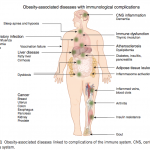It’s what Charles Mobbs, a neuroscientist from the Mount Sinai School of Medicine, calls the “metabolic mystery.” Since the early 1930s, research studies have consistently demonstrated that too many nutritional resources, resulting in conditions like obesity and diabetes, can be toxic to the brain. In contrast, more restrictive diets result in a complicated (and counterintuitive) cascade of protective effects, preventing aging-related diseases and ultimately prolonging life. Today, neuroscientists are learning that the old adage, “you are what you eat,” might need to be updated to “you are how you eat.” And the new work from the National Institutes of Aging suggests that fasting may help promote optimal brain health in aging adults.Eating: Less is more?Several studies have demonstrated that regular exercise helps protect the brain from age-related decline. But in a recent essay published in the March 2012 issue of Nature Reviews Neuroscience, Mark Mattson, a neuroscientist at the National Institute of Aging, argues that diet is just as important. Specifically, he cites results demonstrating that intermittent fasting—one day on food, the next day off of it—can also protect the brain. So why might abstaining from food every 24 hours be such a brain benefit? “Fasting is a challenge to the nervous system, to the energy regulating systems,” says Mattson. “And what we’re thinking, from the standpoint of evolution, is that animals living in the wild, including our ancestors, often had to go extended time periods without food. If you haven’t had food for a while, your mind becomes more active—it has to become very active, to help you figure out how to find food.”That activity manifests itself in neuroplasticity; in mouse models, Mattson and colleagues have shown that intermittent fasting helps protect the brain from both oxidative stress and direct injury. Those protective effects result in the upregulation of brain-derived neurotrophic factor (BDNF) as well as anti-oxidants, DNA-repair enzymes, and other gene products that help promote plasticity and survival of neurons over time.“It makes evolutionary sense that caloric availability would have an impact, not just on brain regions involved in metabolism, such as the hypothalamus, but also on brain regions involved in learning, such as the hippocampus,” says Alexis Stranahan, a professor at Georgia Health Sciences University and Mattson’s co-author on the Nature Reviews Neuroscience essay. “Your mind needs to be sharp if you are looking for food. At the other end of the spectrum, it also makes sense that an overabundance of food would dull the senses, making it harder to form associations.”In the past, some studies suggested that caloric restriction promoted good health—and researchers have seen improved outcomes in animal models of Alzheimer’s disease, Parkinson’s disease, stroke and Huntington’s disease by simply reducing the number of calories an animal eats each day by a significant percentage. But Mattson argues that, when it comes to the brain, fasting may be more effective. “We find that the intermittent fasting increases neurogenesis while limited daily reduction in calories has very little effect,” he says. “BDNF levels are increased in response to both exercise and intermittent energy restriction.”Fasting and human trialsTo date, intermittent fasting has been tested in two human trials. The first was conducted by James Johnson, a plastic surgeon and professor at Louisiana State University, who was inspired by Mattson’s work. He was interested in seeing if caloric restriction might help reduce inflammation and breathing issues in people with severe asthma.“I had a patient who had asthma who used three inhalers plus some oral medication every day,” he says. “After three weeks of alternate-day fasting, she was down to using the inhalers once a day. And after six weeks, she stopped using the inhalers at all. Her asthma symptoms had essentially gone away. It was astonishing.”Johnson partnered with Mattson and other local scientists to do a small clinical trial. They recruited 12 overweight people with asthma to take part in an alternate-day fasting-like regimen. Participants alternated eating whatever they wanted on “on” days and consuming shakes that limited caloric intake to 500-600 calories on “off” days, for two months. “It was a small trial but participants lost weight. They said they felt good. And their asthma symptoms improved,” says Mattson. Measurements of airway resistance improved and the researchers found many markers of inflammation and oxidative stress diminished over the first few weeks. Johnson marked it enough of a success to write a book about the regimen, called “The Alternative Day Diet.” A second clinical trial, led by the University of Manchester’s Michelle Harvie, divided a group of about 100 overweight women with a high risk of breast cancer into three diet groups: average diet, a diet that restricted calories overall by 15 percent and intermittent fasting (with “off” days permitting 600 calories). The results have not been published yet but, once again, Mattson says participants in the fasting group lost weight and improved their insulin sensitivity. Moving forwardBetween the replicated work in animal models and the success of the two small clinical trials, Mattson now has his sights set on the human brain. He and his colleagues are planning to do a study looking at people who are at risk for age-related cognitive decline. He is optimistic that the results will mimic those seen in the smaller trials, demonstrating solid protective effects in the cortex. He and his colleagues also plan to contrast intermittent fasting with exercise in animal models. Mobbs, however, cautions that there’s no reason for everyone to start fasting just yet. He maintains that there is still quite a bit we don’t know about caloric intake and the brain. “That’s why I call it the ‘metabolic mystery.’ And certainly we know that diseases like anorexia are very toxic to the body and the brain. We don’t know when or how these processes go from being healthy to unhealthy yet,” he says. “So your best bet for a healthy brain and a healthy body is still to listen to your doctor and use common sense: follow a reasonable caloric intake, exercise, and avoid obesity.”
Excerpt from:
The Brain's Metabolic Mysteries – Dana Foundation







 For now classes are 6pm and 640pm at 2840 Wildwood st in the Boise Cloggers studio.
Book your class NOW!
click this ==>
For now classes are 6pm and 640pm at 2840 Wildwood st in the Boise Cloggers studio.
Book your class NOW!
click this ==>








